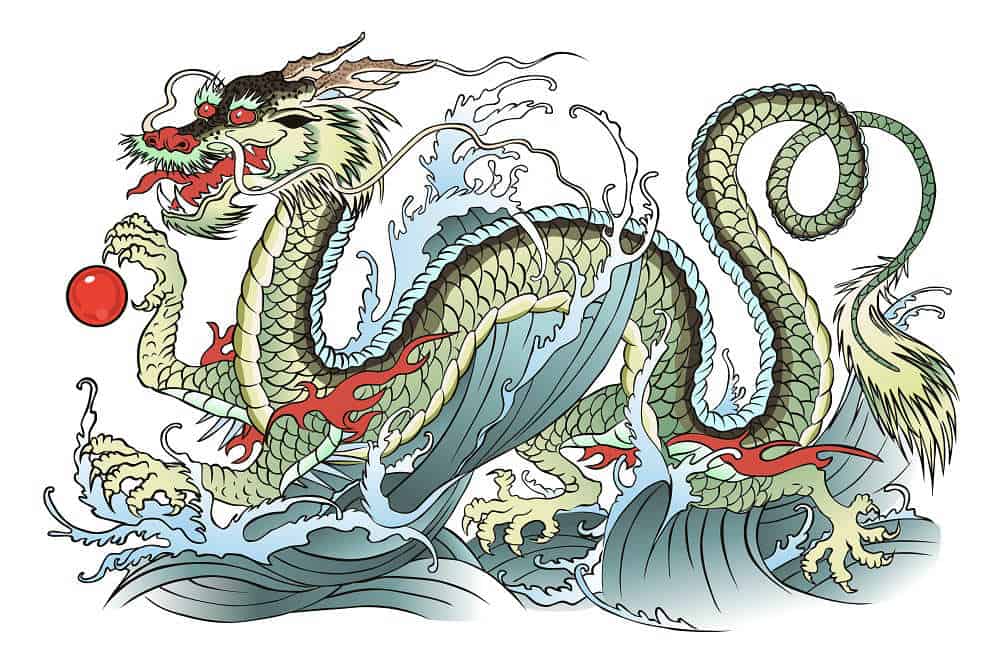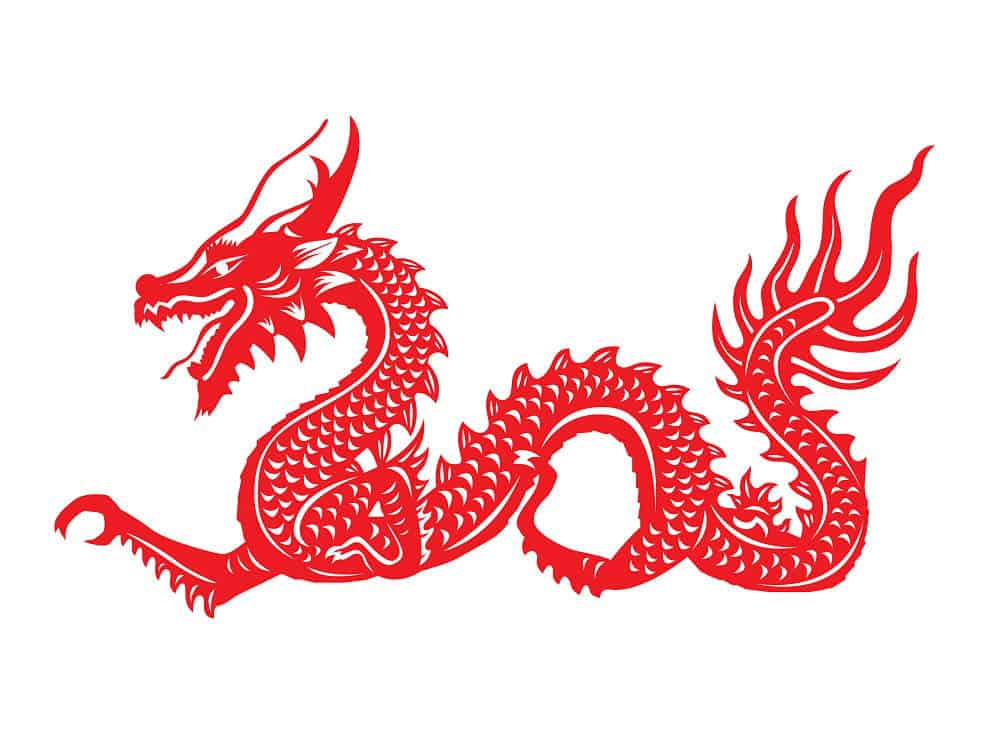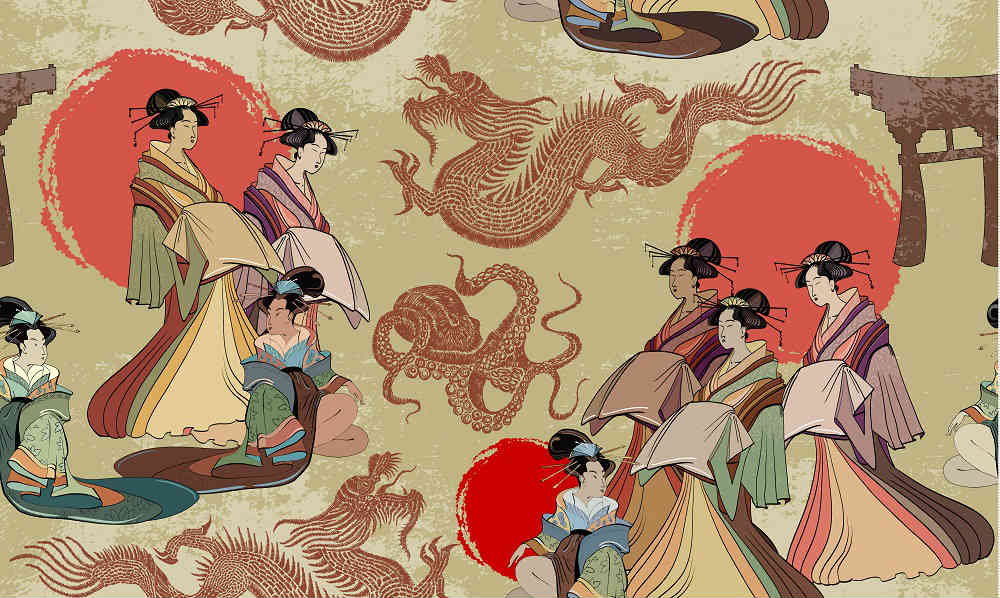Dragons are portrayed as fearsome creatures in many cultures around the world. Eastern cultures represent it as a noble creature with distinct powers, whereas European civilizations considered these creatures to be dark and evil. The symbolism behind this beast can cover a vast array of meanings, depending on the culture and part of the world. In general, they represent balance in Japanese culture and wisdom and good luck in Chinese culture.
Chinese Vs. Japanese Dragon
Chinese dragon tattoos
In China, the dragon represents a half of the Yin and Yang whereas the phoenix symbolizes the other half. These particular Chinese dragons are usually spitting or engulifed in flame, and usually have five claws. It is believed that the dragon symbolizes the equilibrium of Ying and Yang, i.e., that it is just the perfect mixture of good and evil.
It also symbolizes fear, power, and strength. East Asian dragons can have many animal-like forms (such as turtles) but are most frequently represented as snake-like creatures with four legs. Even some Emperors of China used dragons as a symbol of their imperial power throughout their reign.
The number nine is extremely important in Chinese culture, as it is considered to be a lucky number as well as the number of the emperor. Naturally, dragons are commonly connected to this number, and that’s why they are often described in terms of nine attributes. On top of that, a Chinese dragon has nine forms and nine children. The forms are as follows:
- Shenlong – The Spiritual Dragon
- Dilong – The Underground Dragon
- Jiaolong – the Horned Dragon
- Yinglong – the Winged Dragon
- Huanglong – the Yellow Dragon
- Tianlong – the Celestial Dragon
- Fucanglong – the Dragon of Hidden Treasures
- Panlong – the Coiling Dragon
- Dragon King
Japanese dragon tattoos
It is believed that the first emperor of Japan was born from a union between the daughter of the dragon king named Ryujin, and a hunter named Hoori. As you can imagine, this beast has quite the merit when it comes to symbolism in Japan.
Japanese dragons are similar to the Chinese in that they are most often depicted as a massive serpent-like creature with no wings. The best way to distinguish between the two is to look at their toes as the Chinese have five, whereas Japanese dragons have three toes. The Japanese dragon vs. Chinese dragon mindset shouldn’t be regarded as a brawl, but rather a choice between different meanings.
According to another legend, a fisherman named Urashima caught a tortoise, which is a sacred animal in the Japanese culture. He decided to spare the creature and suddenly realized the tortoise was the daughter of the dragon king named Otohime. As a reward, he was granted a visit to her father’s underwater palace where he fell in love and married Otohime.
After a while, he asked to return to Japan and visit his family. Otohime gave him a box that he should carry, but never open. What she didn’t tell him is that once he left, he could never return to the underwater kingdom again. When he arrived in Japan, Urashima realized 300 years have passed and that his family was gone. He then decided to open the box, an action that consequently caused him to start rapidly aging and eventually die.
Chinese Dragon Vs. Japanese Dragon – Which One Should You Choose?
Both of these cultures are full of mythical creatures and amazing stories. However, dragons take a special place in each of these cultures, and contrary to western depictions, Asian dragons symbolize benevolent creatures full of wisdom and strength. Getting either a Japanese tattoo or Chinese tattoo of this beast means you’re willing to protect, serve, and use your strength to conquer challenges you’ll face later in life.
It’s up to you to find the winner of the Japanese vs. Chinese dragon battle by connecting your own personality with the values both of these cultures represent.
For more similar articles, visit our blog, today!




